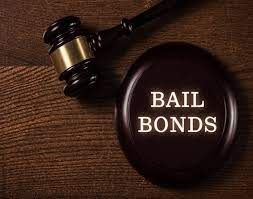What is the Difference Between a Bail Bond and a Personal Bond?
Bail Bond and a Personal Bond
When an individual is arrested for a crime, they can be held in jail until their bail hearing. If they are able to pay their bail, they will be released from custody. A judge sets the bail amount. Defendants can either pay their own bail with cash or contact a bail bond company like All-Pro Bail Bond to help them post their bail. If an accused person fails to appear in court on their scheduled date, they are a “skipper.” The bond company will have to cover the costs of their arrest and bail. The defendant will also have to pay an administration fee to the bail bond company if they skip their trial.
Many people have trouble understanding the difference between a bond and a personal bond. They are often used interchangeably, and this can lead to confusion for people in need of bail assistance. Understanding these terms is essential for helping people get the bail they need when they are in need.
A bail bond is a written promise from a bail bonds to make sure that the accused appears before the court as required. The bondsman will typically ask for a percentage of the total bail amount as the upfront payment, and they will pledge to cover any fees, fines, or restitution that are owed. They may also require collateral, such as real estate, to secure the bond.

What is the Difference Between a Bail Bond and a Personal Bond?
A personal bond is a written guarantee from an individual to make sure that the accused will appear before the court as required. The person must sign a contract with the court stating that they will return as required by the schedule set by the judge. The accused must provide the name, address, phone number, and financial information to the bail bond agent in order to obtain a personal bond.
Some courts only allow individuals to be released on a personal bond if they have a strong relationship with their family or coworkers and have a good work history. The courts will also look at the accused’s previous criminal history in determining whether they should be allowed to be released on a personal bond.
If the court is unable to grant the accused a personal bond, it may ask that they remain in custody and not be granted a bail. A judge can also revoke the bail of an individual who is in violation of the conditions of their release.
When a bail bond or a personal bond is revoked, the bondsman will have to pay the full amount of the bail to the court. This can be a costly process. If the bail bond company pays out the full amount of the bail to the court, they will be refunded the initial upfront payment and the collateral they provided. This can take months to years. The accused must then go back to jail to await trial for their crime. This is why it is important that the accused follow the instructions of their court and law enforcement.